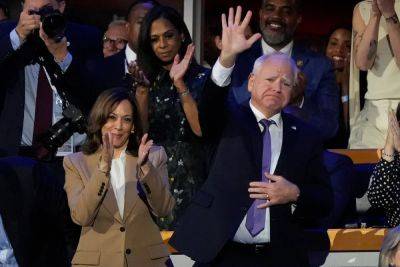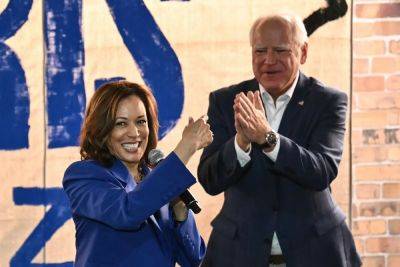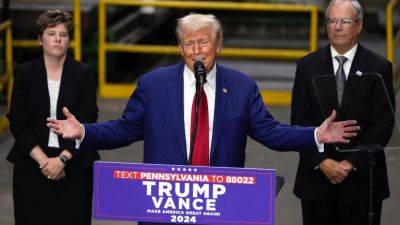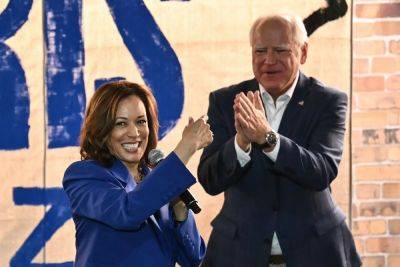New Harris-Walz ad targeting Asian Americans highlights Trump’s Covid ‘kung-flu’ slur
Vice President Kamala Harris’s campaign has debuted a pair ofelection ads focused on Asian American, Native American, and Pacific Islander voters.
The new campaign spots focus on anti-Asian hate and healthcare, NBC Newsreports.
The ads will air both on television — including ethnicity-focused networks like The Filipino Channel, 3HmongTV, SBS Television Korea, and Zee TV — and on apps like YouTube, iHeartRadio, and Snap. They are part of a broader $90m media push to grab voters in battleground states.
In an ad titled «The Seal,» the campaign takes aim at Donald Trump and paints him as being disrespectful toward those with Asian heritages. It highlights his use of the phrase «kung flu» to link the coronavirus to China, accusing him of promoting «xenophobia.» Its title references the ad's argument that Trump should not be allowed to stand behind the «seal of the president of the United States.»
“When Trump called Covid the ‘kung flu,’ he unleashed a wave of hate against our community,” Nashville Metro Council member Terry Vo says during the ad. “I was scared. People didn’t feel safe.”
Trump also used the term «Chinese virus,» which helped spur anti-Asian hate incidents during the pandemic, according to a study by UC San Francisco.
«The study examined nearly 700,000 tweets containing nearly 1.3 million hashtags, the week before and after the president’s tweet on March 16, 2020, to see whether his use of the term “Chinese virus” – an expression that public health experts warned against using – may have led others to use anti-Asian language on Twitter,» according to the university. «They found that users who adopted the hashtag #chinesevirus were far more likely to pair it with overtly racist hashtags.»
Steven Cheung,







